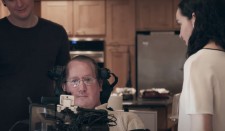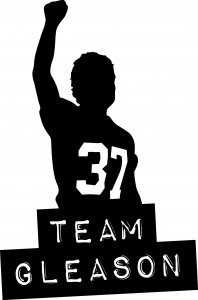Team Gleason and CureDuchenne Collaborate With Google's Project Euphonia to Help Make Speech Technology More Accessible to People With Disabilities

NEW ORLEANS, August 14, 2020 (Newswire.com) - Automated speech recognition, which powers voice-activated technology such as Google Assistant, are more common than ever, but they’re not equally accessible. For example, if you have a speech disorder caused by a neurological impairment like ALS, Duchenne muscular dystrophy, Parkinson’s, Cerebral Palsy, Multiple Sclerosis, low hearing, brain injury, or stroke, then using this technology will be difficult.
Team Gleason and CureDuchenne organizations want to see dramatic improvements in speech recognition. Google’s Project Euphonia’s goal is to help future generations of people living with motor speech impairments by making speech recognition more accessible.
Google’s Project Euphonia is an early-stage research effort to improve speech recognition software so people with impaired speech can be better understood by—and access—this technology. The project is looking for people with mild to moderate-severe dysarthria to help Google advance this technology using your recorded short phrases.
“Google’s Project Euphonia was a chance to turn my disability into an opportunity to help others,” said Erin O'neil, who has Friedreich's ataxia (FA). “It was easy to do and I feel fulfilled knowing that I contributed to the community.” Erin’s recorded phrases will help improve speech recognition software so people with impaired speech can be understood by—and access—this technology.
Team Gleason has partnered with leaders in technology and innovation to help accelerate new and more empowering ways to live with ALS. “Our focus each day is to explore ways to provide support for the ALS community,” said Blair Casey, Team Gleason’s Chief Impact Officer. “We strive to partner with technology companies like Google,” he added. “The power of Voice collaboration with CureDuchenne will help us not only reach the ALS community, but also people with Duchenne muscular dystrophy. In addition to these two communities, we’ll also reach Parkinson’s, Multiple Sclerosis, Friedreich’s Ataxia, and others with dysarthria.”
Google is excited to see the participation and collaboration of the different groups, Team Gleason, CureDuchenne and Two Disabled Dudes podcast to help spread the awareness of the project and give them the opportunity to make dramatic improvements in speech recognition.
“This collaboration gives the Duchenne community a ‘voice’ in life-changing technology to improve the quality of life for thousands,” said Tiffany Cook, MS, CCC-SLP, CureDuchenne.
Kyle Bryant and Sean Baumstark from the podcast ‘Two Disabled Dudes’ are also helping to spread awareness for this project: “Living with urgency means working together to make life better for the community. We are proud to work with Google, Team Gleason, CureDuchenne, and others in the disability community to use the power of our collective voice to improve the future.”
If you are experiencing mild to moderate-severe dysarthria and have slurred or hard to understand speech, you could help Google advance this technology. You will record short phrases that will help train and improve speech recognition software.
Visit www.teamgleason.org/projecteuphonia to fill out a short form to volunteer and record a set of phrases.
About Team Gleason: Team Gleason’s mission is to improve life for people living with ALS by delivering innovative technology and equipment, as well as providing and empowering an improved life experience. For more information on how to help people living with ALS have the resources and the opportunities to not only continue living, but continue living productive, purposeful, and meaningful lives, please visit www.TeamGleason.org.
About CureDuchenne: CureDuchenne is recognized as a global leader in research, patient care and innovation for improving and extending the lives of those with Duchenne muscular dystrophy. As the leading genetic killer of young boys, Duchenne affects more than 300,000 individuals living today. For more information on how to help raise awareness and funds needed for research, please visit www.cureduchenne.org.
Source: Team Gleason
